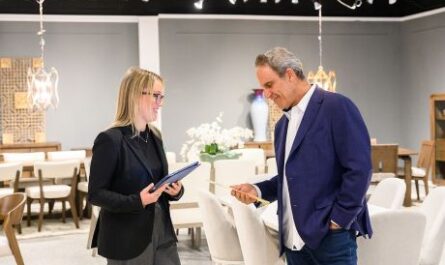The American furniture business was built by families — craftsmen who measured success in legacy, quality and relationships, not quarterly earnings.
Over time, private equity firms entered the picture with promises of growth capital, “efficiency” and professionalization. Sometimes it worked. More often, it ended with layoffs, brand erosion and a going‑out‑of‑business sale.
Let’s look at a few very real stories — some disastrous and two that avoided the usual PE pitfalls.
Art Van Furniture: A Case Study in Collapse
Founded in 1959, Art Van became a powerhouse across the Midwest. By 2014, annual revenue was roughly $620 million, with more than 100 stores and thousands of employees.
In 2017, Thomas H. Lee Partners acquired Art Van for about $550 million–$617 million, adding two more chains (Levin and Wolf Furniture) for another $260 million.
The plan: rapid expansion and “unlocking value.” The reality: ballooning debt (about $400 million) and lease‑back deals that gutted cash flow. By March 2020, Art Van filed for bankruptcy, shuttering all stores and erasing more than 3,000 jobs.
Heritage Home Group: From Iconic to Irrelevant
Furniture Brands International — home to the crown jewel brands including Broyhill, Thomasville, Drexel Heritage, Henredon, Hickory Chair, Pearson, Laneventure and Maitland-Smith — was once a billion‑dollar giant ($1.74 billion in revenue in 2008). In 2013, KPS Capital Partners scooped it up in bankruptcy, forming Heritage Home Group.
What followed? Plant closures in North Carolina and Mississippi, layoffs and brand fragmentation. Those beloved names became licensing shells, far removed from the companies that built them.
Pride Family Brands: A Second Act, Then a Third Act Unfolds
Founded in 1977 by Bernie Lowsky and later run by his sons Steve and Jamie, Pride Family Brands built a reputation crafting luxury outdoor furniture under names like Castelle, Prestige, Expressions and more budget-friendly SummerWinds. With vertically integrated manufacturing in Costa Rica, they serviced more than 1,000 U.S. retailers by the mid‑2010s.
In 2015, private equity firm New Water Capital acquired a majority stake. The Lowsky family remained engaged — Steve stayed CEO, Jamie stayed on the board — and the company grew showroom presence at High Point, retained about 450 employees and continued earning design accolades
Then, in May 2019, Pride’s assets and equity — including its Costa Rica operations — were sold to an affiliate of Brown Jordan International, itself a PE-owned company backed by Littlejohn & Co. Though the sale was orchestrated to “solidify long-term financial structure and position Pride for future growth,” multiple industry insiders suggest things took a turn — not toward expansion, but brand dilution and operational upheaval.
While little public data confirms revenue declines or mass layoffs, the fact that Pride Family Brands’ brands were absorbed into Brown Jordan’s larger portfolio signaled a shift from boutique-style precision to consolidation.
Even though no bankruptcy followed, the nature of its sale — asset and equity wind-down rather than strategic growth — suggests Pride’s original spirit was diluted. The same vertical integration and Costa Rican manufacturing that once differentiated the brand became part of a larger balance sheet, not a growth story insight.
Now, the tale of two exceptions.
Ethan Allen is a standout success story. After a 1989 leveraged buyout, primarily driven by Ethan Allen’s then-CEO, Farooq Kathwari, the company went public in 1993 and remains profitable today — with $791 million in revenue and $106 million in net income as of 2023.
Lexington Home Brands, acquired by Sun Capital in 2002, is another PE win.
The brand stabilized, modernized and remains one of Sun’s better investments.
It is also worth a mention that Kathwari and Lexington’s Phil Haney both deserve a nod for their skills at driving their company’s respective and sustained success.
The PE Scorecard
| Company | Peak Revenue / Deal Size | PE Outcome |
| Art Van Furniture | ~$850 M (2018) | Bankrupt, liquidated, 3,000+ jobs lost |
| Heritage Home Group | $1.74 B (2008) | Plant closures, brand dilution |
| Pride Family Brands | ~$30–300 M (est.) | Stable growth, leadership continuity |
| Ethan Allen | $791 M (2023) | Successful LBO → IPO, still profitable |
| Lexington Home Brands | N/A | Stabilized, ongoing operations |
Private equity isn’t leaving the furniture world anytime soon. Rising interest rates, succession challenges for aging family owners and the ongoing shift to e-commerce make the sector attractive to investors with capital and a playbook.
The good news? The PE model itself is evolving. Firms are increasingly aware that gutting brands and flipping assets for a quick payday isn’t always the best strategy — especially when social media amplifies every closure, layoff or broken promise.
But as long as easy money is on the sidelines and outside investors with no real understanding of the sector see the chance for a quick hit, there will always be pressure for the next Art Van‑style expansion.
The winners will be the firms that realize that the furniture game really isn’t just about selling units — it’s about brand trust, design integrity and relationships with retailers and customers.
So, my advice for the next round of PE players looking to make a quick killing in our sector — go back and read the previous paragraph.
Brand trust, integrity, relationships and respecting the heritage brands you want to be matter. You can’t flip these nonnegotiables in 36 months, no matter how slick your pitch is or how creative your Excel model may be.

 by
by 


